austinbar.org
JULY/AUGUST 2023 | VOLUME 32, NUMBER 6

austinbar.org
JULY/AUGUST 2023 | VOLUME 32, NUMBER 6

We are pleased to announce that Austin Bar member attorneys will be able to receive attorney parking cards for the Travis County Civil and Family Courts Facility (CFCF). We have been studying the parking situation for the past several months and believe we have the space to allow for attorney parking. However, this is a pilot program to make sure we will have a sufficient number of spaces and can continue to maintain a safe and secure building for all of Travis County.
To apply for their CFCF parking card, attorneys must first obtain a letter from the Austin Bar Association that (1) demonstrates proof of their Austin Bar Association membership and (2) contains an attorney self-certification for the completion of technology training at the CFCF. Visit https://www.traviscountytx. gov/courts/civil/tccfc for more information and to see the training schedule (scroll down to see all of the training times and dates). You do not need to make an appointment for this training—just attend a training that fits your schedule. You will not get a separate document certifying that you have taken the technology training; it is on the
honor system.
To obtain the necessary letter from the Austin Bar, visit austinbar.org/membercard. If you are not signed into your account, you’ll be prompted to do so before you can access your letter.
If your membership is in good standing, you will see a valid membership letter. If you are not in good standing, you will need to contact the Austin Bar to correct any issues. Attorneys who are not currently Austin Bar members can join (or re-join) the Bar to automatically generate a letter of good standing.
On your letter, you will need to circle that you affirm you have taken the technology training.
Attorneys will need to schedule an appointment with the Travis County Sheriff’s Office (TCSO) to have their photo taken for the parking card. TCSO is on the first floor of the CFCF. Be sure to bring
a government-issued ID and your letter of good standing with your certification that you have taken the technology training course. The photo ID office for the TCSO will also be open between 3 and 5 p.m., Monday through Friday (excluding county holidays).
Once an attorney parking card has been issued, attorneys will need to have the card in their possession and must display it to the parking attendant to enter the CFCF parking garage on San Antonio Street.
Please remember that Travis County personnel and jurors have priority parking in the CFCF garage, so daily attorney parking is subject to availability. In addition, you must follow the instructions from the Travis County parking at-
tendant on duty at the time of your arrival.
In the event the CFCF garage is full, please refer to the diagram above for alternative parking options. AL
 Meachum.
Judge Amy Clark
Meachum.
Judge Amy Clark





I’m not sure why I waited so long to get it set up.
FEATURED ARTICLES


1 New Austin Bar Member Benefit: Attorney Parking at Travis County Civil and Family Courts Facility
20 Decriminalizing Mental Health in Travis County: Part 1
22 More Than $50,000 Raised to Honor Judge Yeakel’s Retirement from Federal Bench
23 Betty Balli Torres Receives Lifetime Achievement Award
24 ABLA Honors Trailblazers at 2023 Andrea Pair Bryant Legacy Luncheon
28 Austin Nonprofit Receives Grant to Develop Programming for Incarcerated Girls
29 One Door Closes, Another Opens: The Origin Story of the Austin Bar/AYLA Leadership Academy

30 Travis County’s Expunction Expo Results in Hundreds of Criminal Record Expunctions
Have you heard the Austin Bar’s podcast?
Be sure to check out the Austin Bar’s podcast, Council of Firsts, hosted by Amanda Arriaga, first Latina president of the Austin Bar. New episodes are released every Tuesday. The podcast is available on Apple Podcasts, Spotify, and all other podcasting platforms, or you can watch it on YouTube!
DEPARTMENTS
6 President’s Column
12 Opening Statement
CONNECTIONS
ONLINE
austinbar.org
EMAIL billy@austinbar.org
MAIL Austin Bar Association 712 W. 16th Street Austin, TX 78701
SOCIAL
LIKE facebook.com/austinbar
FOLLOW twitter.com/theaustinbar
WATCH vimeo.com/austinbar
STREAM @AustinBarAssociation
UPCOMING EVENTS
JULY 10 Veterans’ Legal Advice Clinic 7901 Metropolis Drive Austin VA Outpatient Clinic
Interested in volunteering? Contact Doug Lawrence at doug@austinbar.org.
FOLLOW instagram.com/theaustinbar

TEXT austinbar to 313131 for up-to-date news + info Message & data rates may apply.

AUSTIN BAR ASSOCIATION

Justice Chari Kelly President
Mary-Ellen King President-Elect
Maitreya Tomlinson Secretary
Judge Maya Guerra Gamble Treasurer
Amanda Arriaga Immediate Past President
AUSTIN YOUNG LAWYERS ASSOCIATION
Sarah Harp President
Emily Morris President-Elect
Jenna Malsbary Treasurer
Gracie Wood Shepherd Secretary
Blair Leake Immediate Past President
Austin Lawyer
©2023 Austin Bar Association; Austin Young Lawyers Association
EXECUTIVE OFFICES
712 W. 16th Street
Austin, TX 78701
Email: austinbar@austinbar.org
Website: austinbar.org
Ph: 512.472.0279

DeLaine Ward Executive Director
Debbie Kelly Associate Executive Director
Rachael K. Jones Editor-In-Chief
Billy Huntsman Managing Editor
Austin Lawyer (ISSN #10710353) is published monthly, except for July/August and December/January, at the annual rate of $10 membership dues by the Austin Bar Association and the Austin Young Lawyers Association, 712 W. 16th Street, Austin, TX 78701. Periodicals Postage Paid at Austin, Texas. POSTMASTER: Send address changes to Austin Lawyer, 712 W. 16th Street, Austin, TX 78701.

Austin Lawyer is an award-winning newsletter published 10 times a year for members of the Austin Bar Association. Its focus is on Austin Bar activities, policies, and decisions of the Austin Bar board of directors; legislation affecting Austin attorneys; and other issues impacting lawyers and the legal professionals. It also includes information on decisions from the U.S. District Court for the Western District of Texas and the Texas Third Court of Appeals; CLE opportunities; members’ and committees’ accomplishments; and various community and association activities.
The views, opinions, and content expressed in this publication are those of the author(s) or advertiser(s) and do not necessarily reflect the views or opinions of the Austin Bar Association membership, Austin Bar Association board of directors, or Austin Bar Association staff. As a matter of policy, the Austin Bar Association does not endorse any products, services, or programs, and any advertisement in this publication should not be construed as such an endorsement.
Contributions to Austin Lawyer are welcome, but the right is reserved to select and edit materials to be published. Please send all correspondence to the address listed above. For editorial guidelines, visit austinbar.org in the “About Us” tab.



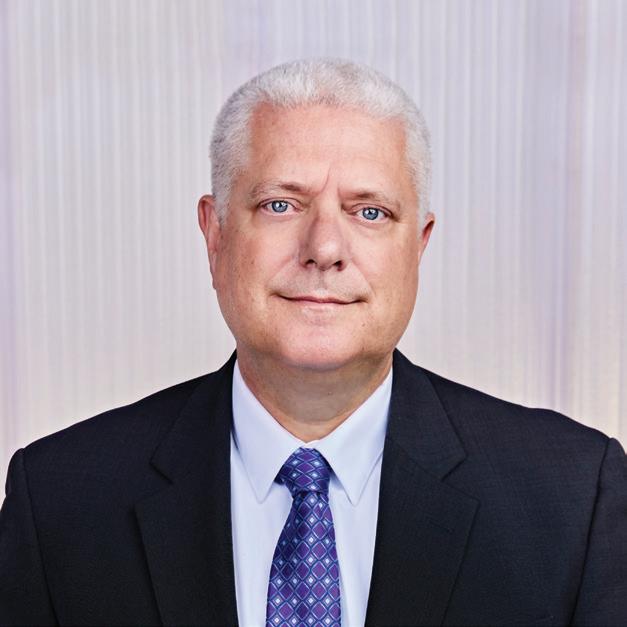

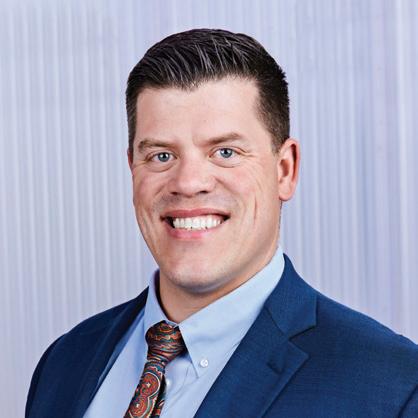




 Jaynie Badgett
Liz Duggan
Mark Pryor
Rick Cofer
Garrett Emerson
Ramey Ko
Alyse Munrose
Jeffrey Connelly
Geoffrey Puryear
Natalia Tsokos
Jaynie Badgett
Liz Duggan
Mark Pryor
Rick Cofer
Garrett Emerson
Ramey Ko
Alyse Munrose
Jeffrey Connelly
Geoffrey Puryear
Natalia Tsokos

AL: What is your background? (Where you grew up, went to school, law school, etc.)
KELLY: I grew up in Daytona Beach, Fla., just a stone’s throw from Walt Disney World. I attended the University of Florida for undergrad, where I was in the Army ROTC program. Upon graduation, I was commissioned as a second lieutenant and received an educational delay of service to attend The University of Texas School of Law. I thought I would be in Austin only for school, but I am proud to have called Austin my home now for nearly 20 years.
AL: What do you want to share about your family?
KELLY: I met my husband, Norton Rose Fulbright partner Adam Schramek, at UT Law when we were paired as advocates on the same interscholastic mock trial team. I like to think that he saw my trial skills and decided that he could have no other! After nearly 20 years of marriage, we just welcomed our baby daughter, Chari Adora, this spring.

AL: What was your first job out of law school?

KELLY: I was a defense attorney in the Judge Advocate General’s Corps (JAG). I represented soldiers accused of crimes at courts-martial— think A Few Good Men meets Fort Cavazos, Tex. (formerly Fort Hood).
Our motto was, “Defending those who defend America.” After an acquittal, we would hang a pirate flag on our office door for at least a week. My Army experience is second only to being a judge on the Third Court of Appeals.
AL: What has been your career path from then until now?
KELLY: After active duty, I was a staff attorney for the Court of Criminal Appeals before transitioning to civil litigation and spending several years suing pharmaceutical companies for Medicaid fraud on behalf of the State of Texas. Growing up watching Law & Order, I always wanted to be a prosecutor. After a humbling job search, I became a felony prosecutor first in Comal County and then in Travis County. During my career, I have tried to a jury everything from murder to theft of copper. I love trial work and have taught in the Trial Advocacy Department at UT for over 15 years.
AL: What made you decide to run for the Third Court of Appeals?
KELLY: When I was growing up, I would tell people I wanted to be president of the United States. After the 2016 election, I decided it was time for me to pursue elected office. You cannot make a difference by sitting on the sidelines. At the time, not a single Democrat was on the court or had been elected to it for
years. I had lawyers laugh at me and say I was wasting my time. But I have never been someone who looks for the easy path or the sure thing. The Army taught me to fight for the things I believe in. I will never forget the 2018 election night, when Congressman Doggett walked up to me at the Driskill Hotel and said, “Congratulations, Justice.”
AL: Was election night your proudest moment?
KELLY: Actually, no. My proudest moment was graduating from
Army Airborne School (a.k.a. earning my jump wings). I had to compete to attend airborne school and, as you can imagine, there are very few slots for Army lawyers. But I knew, as a soldier defending male soldiers, some many years my senior, I needed to be able to quickly establish credibility. My jump wings did just that. Most of my clients didn’t know a female paratrooper—much less one who was also a lawyer. It’s that instant credibility as a soldier that helped me be my best as a lawyer in and out of the courtroom.
AL: How long have you been involved with the Austin Bar?
KELLY: Since I left active duty in 2007. Adam was already very connected with the bar and on the path to leadership. When I started practicing as a civilian in Austin, I thought it was important to connect with other local attorneys. I was in the inaugural class of the Austin Bar/AYLA Leadership Academy. That inspired me to run for the AYLA board and then executive positions. After that, I started down the path of Austin Bar leadership. I consider the Austin Bar (including Debbie Kelly and DeLaine Ward) like family since it has been such an important part of my development as an attorney. I am proud to say that Adam and I are the first husband-wife couple to both serve as presidents of AYLA and the Austin Bar. Of course, we’re very competitive, so now I just need to throw a better gala than he did!
AL: Why would you encourage someone to get involved?
KELLY: You may be able to practice law these days sitting in
front of a computer in your home, but Zoom cannot make you part of the legal community. Whether it is volunteering at a pro bono veteran’s legal advice clinic, attending the annual Bench Bar, or joining section lunches and CLEs, the Austin Bar provides lawyers with the chance to make connections and grow as professionals unlike any other organization. It is particularly important for young attorneys, who need mentoring and guidance as they build their careers, to be part of a legal community like the Austin Bar.
AL: What has been the biggest benefit you’ve received from being involved?

KELLY: I am lucky enough to have found several lifelong friendships through the Austin Bar. From the Leadership Academy to Bar and Grill and the Austin Bar board, I have connected with so many people whom I never would have known if I had stayed in my own little bubble at the office.

AL: Do you have a particular focus or theme for your term?
KELLY: Reconnection and mentorship. I am so honored to be recognized at the State Bar annual convention this year as the 2023 Texas Mentor of the Year. Through the Austin Bar, I hope to expand on the work I have done to help guide and train the next generation of lawyers to success in our profession. In times that have been especially divisive and isolating, I hope to bring people together, both personally and professionally, to make connections and create relationships that would never otherwise exist. I recently received an email from a mentee who said how, but for my guidance, she might never have chosen the career path she did. That path not only led to a fulfilling career, but to her new family. You cannot share advice or help your colleagues unless you meet and interact with them. That’s what I want to work to increase this year—opportunities to meet and mentor newer members of our profession. Be on the lookout for joint events with AYLA that will give you opportunities to connect with lawyers young and old to both teach and learn.
AL: What is a little-known fact about yourself that you’d like to share?
KELLY: I was once mistaken for Taylor Swift by a couple at Wurstfest in New Braunfels (the 10-day salute to sausage). Yes, they were drunk, and the lights were dim. And, yes, I posed for the picture—who am I to ruin their dream? I also won a contest at Alamo Drafthouse by eating a one-pound giant gummy bear the fastest at a Willy Wonka quote-along. I wouldn’t recommend it. Remember, in an eating contest, even if you win, you lose.
AL: Is there anything else you’d like to share with our members?
KELLY: Between my work on the Third Court, caring for an infant, my term as Austin Bar president, and running for re-election, it is going to be a busy year. For those attorneys who want to participate in Austin Bar activities but are concerned they do not have the time, I say, “Yes, you do!” Let’s make up for the time we lost during COVID. Step up and step out! AL
The Austin Bar welcomes the following new members:

Erik Avots-Avotins
Rushton Barrosse
Brian Bishop
Thomas Bleich
Austin Broussard
David Cabrales
Michaela Cappello
Mary Choate
Catherine Clein
Patrick Comerford
Meghan Curtin
Brandon Fahrenfort
Lesli Fitzpatrick
Caroline Geiger
Laura Grumbine
Melanie Harper
Virginia Hoelscher
Lisa Hoing
Cindy Izquierdo
Rania Khamees
Katherine Lickteig
Stone Martin
Morgan Menchaca
Marenda Natera
Oruonye Matgaret Odunze
Shujie Shao
Justin Sun
Amelia Thayer
Carrie Ward
Victoria White
Patrick Wolf
Benjamin Wolff
Congratulations to Zach Daniel of Bathaee Dunne for his election to the Austin Black Lawyers Association (ABLA) board of directors. Daniel will serve as treasurer of ABLA. Daniel previously served as ABLA CLE Committee chair.




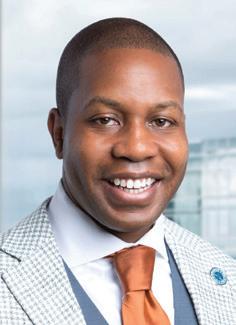
Congratulations to Robynn Fletcher, who was elected to the Austin Black Lawyers Foundation (ABLF) board of directors as both secretary and trustee.
Congratulations to Amber Goodwin, assistant district attorney in Travis County’s Special Victims Unit. Goodwin was elected to ABLA’s board of directors as corresponding secretary.
Congratulations to David Holmes of Walsh Gallegos Treviño Kyle & Robinson P.C’s Austin office. Holmes was elected as treasurer of ABLF.
Congratulations to Hon. Aurora Martinez Jones of the 126th District Court, who was elected as trustee of ABLF.
Congratulations to Dondraius Mayhew, assistant district attorney, who was elected as ABLA’s financial secretary.
Congratulations to Rudy Metayer, Pflugerville City Councilmember and attorney at Graves Dougherty Hearon & Moody. Metayer was elected as trustee of ABLF.
Congratulations to Alyssa Patterson of the Travis County District Attorney’s Office, who was elected vice president of ABLA.
Congratulations to Tyra Perkins with Tyra J. Perkins – Attorney at Law, who was elected as ABLA’s member-at-large. She previously served as ABLA’s corresponding secretary.

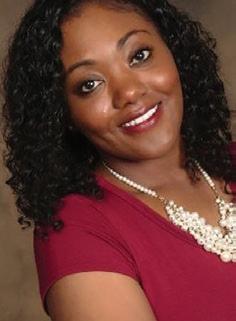
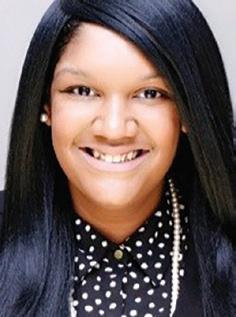

Congratulations to Travis County District Clerk Velva Price, who
was elected as trustee of ABLF. Price previously served as the legacy luncheon chair for ABLA.
Congratulations to Johnathan Stone, assistant attorney general in the general litigation division, who was elected president of ABLA. Stone previously served as ABLA’s vice president.
Congratulations to Ayeola Williams, deputy counsel at CapMetro, who was elected chair of ABLF. AL


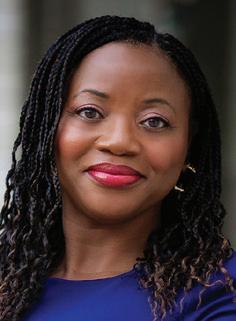

Anecdotal evidence suggests that, when trying to persuade, presenting three concepts is better than presenting two. Or four. Or more. We see examples of memorable, powerful threes in advertising, in literature, and even in the Declaration of Independence:
• snap, crackle, and pop
• I came; I saw; I conquered
• life, liberty, and the pursuit of happiness
Yes, I just gave three examples. Do you have a sense of the importance of three in writing? Did you ever learn to write a “five-paragraph essay?” You present an introduction and a conclusion, but in between you write the first point, the second point, and the third point—the power of three.
When creating lists, presenting claims, or organizing arguments, writing in threes is common advice from legal-writing experts.
“Judges use the Rule of Three. Practitioners use the Rule of Three. And so do all manner of legal academics,”1 says Patrick Barry.
Diana Simon advises that, when possible, “distill your arguments down to three main points … and, if possible, eliminate arguments after that point.”2
And Bryan Garner reports that, “A mathematician once told me
that there are really only four numbers in the world: one, two, three, and many.”3

But is the persuasive power of three anything more than good advice?
Yes.
Empirical studies validate the “magic of three,” as Diana Simon summarized in a recent article.4
In one study, subjects learning a new word were better able to understand and apply the word’s meaning after being given three examples.5 Similar research suggests that we consider evidence and examples to establish a pattern or a “streak” once they hit three. 6
In another study, subjects described getting back together with an ex-partner, and the descriptions had from one to six reasons that the renewed relationship was good. In one scenario, the person described the ex-partner with four words: “intelligent, kind, funny, and cute.” Researchers noticed that the fourth word provoked skepticism in listeners, and, overall, those who heard three positive traits were more likely to approve of the relationship than those who heard four.4 The authors of that and other studies concluded that “the optimal number of claims is three ….”8
In the real world, you can’t always force legal standards into
threes. After all, premises liability in Texas has four elements. But if one element is beyond dispute, or if one has been waived or stipulated, your memo, motion, or brief can present the three remaining elements. Or maybe the fourth element is supported by three arguments or three key pieces of evidence.

Would using some examples help you present your position?
If so, consider using one or three, but not two—and definitely not four.
Remember the power of three.
And when constructing sentences, if you have the opportunity to present parallel ideas, phrases, or clauses, see if you can reasonably present them in threes. This:
• The employer’s responses were hasty, terse, superficial, and disrespectful. is likely not as powerful as this:
• The employer’s responses were hasty, terse, and superficial. When you can, take advantage of the power of three.
1 Patrick Barry, The Rule of Three, 15 Legal Comm. & Rhetoric 247, 247–48 (2018).
2 Diana J. Simon, The Power of Connectivity: The Science and Art of Transitions, 18 Legal Comm. & Rhetoric: JALWD 65, 80 (2021).
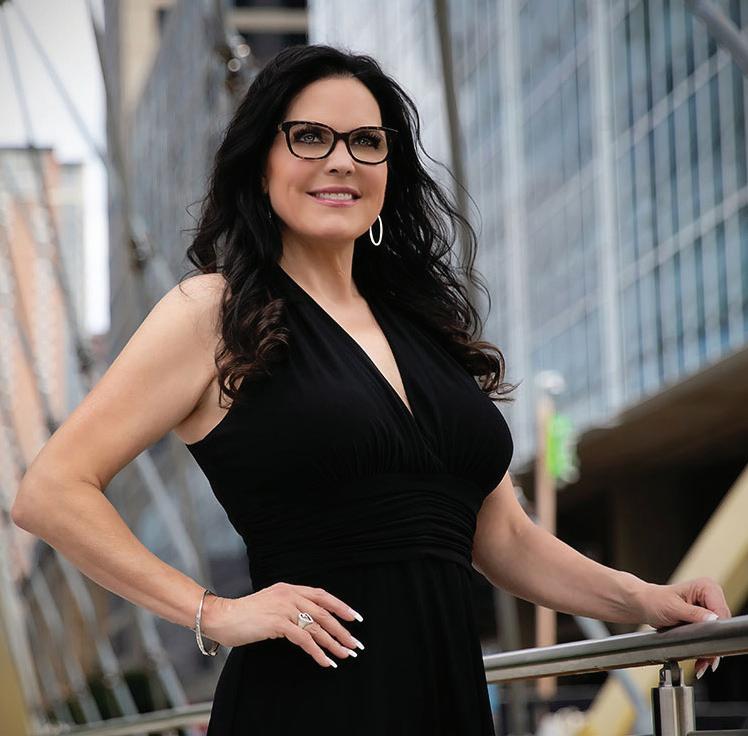
3 Bryan A. Garner, Good Headings Show You’ve Thought Out Your Arguments Well in Advance, ABA J. (2015), https://www. abajournal.com/magazine/article/good_ headings_show_youve_thought_out_ your_arguments_well_in_advance/
4 Simon, The Power of Connectivity, at 7677.
5 Simon, The Power of Connectivity, at 77, citing Suzanne B. Shu & Kurt A. Carlson, When Three Charms but Four Alarms: Identifying the Optimal Number of Claims in Persuasion Settings, 78 J. Marketing 127, 137 (2014), citing J.B. Tenenbaum & F. Xu, Word Learning as Bayesian Inference, Psychol. Rev., 114(2), 245–72 (2000).
6 Kurt A. Carlson & Suzanne B. Shu, The Rule of Three: How the Third Event Signals the Emergence of a Streak, 104(1) Org. Behav. & Hum. Decision Processes 113 (2007).
7 Shu & Carlson, When Three Charms, as reported in Susannah Jacob, The Power of Three, N.Y. Times (Jan. 3, 2014), https:// www.nytimes.com/2014/01/05/fashion/Three-Persuasion-The-Power-ofThree.html.
8 Id. at 138. AL
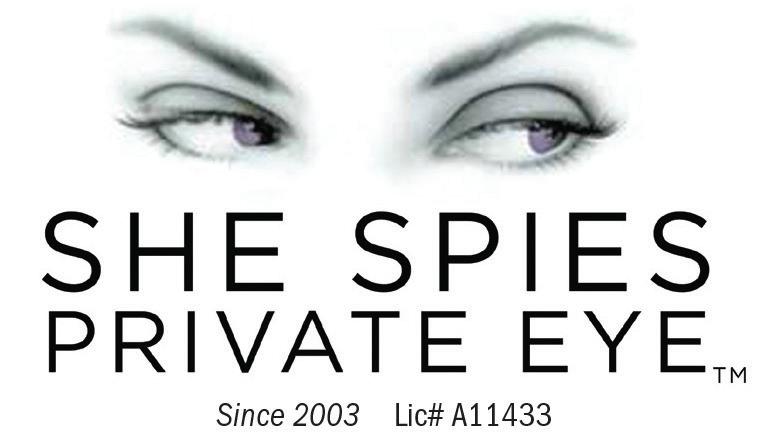
“Information is power, the not knowing is devastating.”
The U.S. Copyright Office has launched an initiative to examine the law and policy issues presented by the proliferation of artificial intelligence (AI) technologies.
In a policy statement published in the Federal Register on March 16, 2023, the office explains how the human-authorship requirement applies to materials containing AI-generated elements.
Applicants have a duty to dis -
close the inclusion of AI-generated content in their registration submissions.
The policy statement outlines how to do so, how to update pending applications, and how to correct the public record on copyright claims that have already been registered without
the required disclosure.
Between April 19 and May 31, the office held several listening sessions, each focusing on different fields of copyright: literary works, visual works, audiovisual works, and music and sound recordings. These listening
sessions are available to the public at the initiative’s newly launched website, copyright.gov/ai.
“Later this year, the office plans to publish a notice of inquiry soliciting public comments on a wide range of copyright issues arising from the use of AI,” said a press release from the office. AL
Increasing productivity and efficiency in how you spend your time as a legal professional is important for several reasons, including cost savings, creating a competitive advantage, increased job satisfaction, and preventing burnout.
Legal professionals can use these tips to increase their productivity, manage their workload effectively, and provide high-quality service to their clients:
1. Use technology to automate repetitive tasks.
2. Set realistic deadlines.
3. Avoid multitasking.
4. Take breaks and practice self-care.
5. Learn to say “no” to low-value work.
Time-tracking software enables better time management and makes it simple to accurately track the time spent on different tasks. And, it provides visibility into how time is being spent, enabling lawyers to identify areas where they can improve efficiency.
Legal work requires tracking billable hours and expenses and preparing detailed client invoices. This process can be time-consuming and prone to errors, impacting productivity and profitability. Invoicing software can automate this process, allowing legal professionals to generate invoices quickly and accurately, saving them valuable time, and increasing cash flow.
By accepting online payments, legal professionals can reduce the time and resources spent on billing and collecting payments, freeing up time for other essential tasks. Additionally, online payment acceptance can help legal professionals manage their cash flow more efficiently by providing real-time payment processing and notifications, allowing them to stay on top of their finances.
Sponsored Content
Reference this checklist to bring your billing process up to the gold standard:
• Use time-tracking software or tools to accurately track your work hours.
• Record your time daily or at regular intervals to avoid forgetting important details.
• Communicate clearly about your billing process, including rates, payment terms, and payment methods.
• Create detailed invoices outlining the work performed, hours billed, and any expenses incurred.
• Invoice clients promptly and regularly, preferably on a weekly or bi-weekly basis.
• Include a due date on your invoices and send reminders to clients about upcoming payments.
• Keep detailed records of all client invoices and payments, and reconcile your records with your bank statements regularly.
• Review your billing and invoicing process consistently to identify areas for improvement.
• Be transparent and responsive to client questions or concerns about billing.
LawPay Pro is a cloud-based software developed specifically for lawyers and designed to handle the entire billing process from end to end. With LawPay Pro, legal firms can use the technology needed to create and grow a successful business without dealing with the steep learning curve.
Some of the top benefits of LawPay Pro include:
• Streamlined and automated billing and payment services
• Accurate and easy time and expense tracking
• Sending invoices via text and email
• Increased organization and productivity
LawPay Pro packages start as low as $19 per month per user, and you can receive a free demo. We invite Austin Bar members to learn more today at https://www.lawpay.com/introducing-lawpay-pro/?partner=aus&utm_campaign=lpp-lawpayprolaunch23&utm_medium=web&utm_source=aus
AYLA: Tell us about your responsibilities as an assistant attorney general.
Sarah Harp is an assistant attorney general with the Office of the Attorney General of Texas (OAG). She works in the Criminal Appeals Division and was formerly a law clerk with the agency. She obtained her J.D. from the University of Tulsa College of Law and received her undergraduate degree from the University of Oklahoma. Prior to moving to Texas, she worked in the Tulsa County Public Defender’s Office as a licensed legal intern and worked in the same role at the Lobeck Taylor Family Advocacy Clinic.
AYLA: Tell us about yourself.
HARP: First and foremost, I am an emotional support human to a poodle mix named Savage. He was a rescue that a friend found on Facebook, so I’m a proponent of “adopt, don’t shop.”
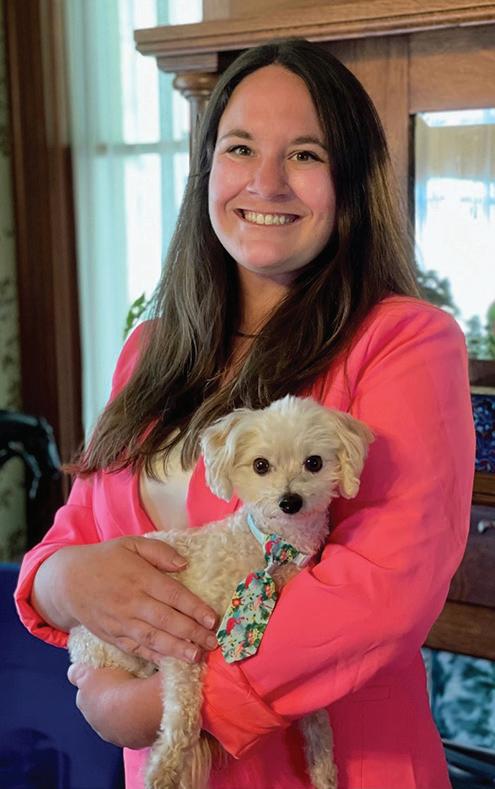
I also love traveling. I used my first OAG paycheck to fly to Chiang Mai, Thailand, and volunteered with the elephant sanctuary there. I also spent the summer before my third year of law school teaching English in a oneroom schoolhouse to elementary students in rural Costa Rica, and last year I took a course on the psychology of criminal behavior at the University of Oxford in the UK. I could talk about travelling all day, but I don’t want everyone to fall asleep.
HARP: I predominately respond to federal habeas corpus petitions. I’ve also had the privilege of responding to state habeas corpus applications in district courts and filing appellees’ briefs in state appellate courts, and I’ve filed briefs in the Fifth Circuit and a brief in opposition to the granting of a writ of certiorari in the U.S. Supreme Court.
AYLA: Why did you first get involved with AYLA?
HARP: When I moved to Austin a few days after graduating from law school, I didn’t know anyone, and I didn’t have a job. I went to my first AYLA Docket Call before I had even passed the bar, and since then it has been a lifeline for me. I’ve met most of my friends through AYLA, and it’s an easy way to get involved with the community. It is the most non-judgmental and welcoming organization I have ever been part of, and I am incredibly grateful to everyone who attends, sponsors, and plans our events, especially our executive director, Debbie Kelly. Without AYLA I would just be a rapidly aging dog lady who watches Real Housewives after work every day.
AYLA: Tell us some of your goals and/or plans for the upcoming year with AYLA.
HARP: AYLA runs like a welloiled machine, so we will continue to do Docket Calls, have health and wellness activities, fundraise for our holiday program with the YMCA, throw crawfish boils, and have volunteer opportunities for our members, just to name a few.
Every year we add more events,
like the Trial Institute that [immediate past president] Blair Leake worked tirelessly on, so I would like to continue that legacy and put together an event that will benefit the entire community. We are currently writing grant proposals, so I don’t want to give away too much.
I would also like to increase the number of government attorneys we have as members. AYLA is an organization that doesn’t label people, and we stay out of the political arena, so there’s no downside to joining and meeting a bunch of awesome people.
AYLA: What would you say to young lawyers to show them the benefit of joining AYLA?
HARP: It doesn’t matter if you’re new to Austin or if you were born here. It doesn’t matter
if you went to Harvard or wherever Saul Goodman got his degree. It doesn’t even matter if you’re 70 years old. AYLA has something for everyone, and if you can’t find an event that matches your interest, let me know, and we will create a committee for you that matches whatever it is you’re passionate about. I’ve never met anyone who didn’t want to make friends and feel like they belong somewhere, and that’s exactly what AYLA provides: a loving community of attorneys who want to use their good fortune to lift others up.
“AYLA is an organization that doesn’t label people, and we stay out of the political arena, so there’s no downside to joining and meeting a bunch of awesome people.”
At the final 2022-23 AYLA board meeting, the AYLA President’s Awards were given out.
Jenna Malsbary was awarded the AYLA President’s Award for Outstanding Director.

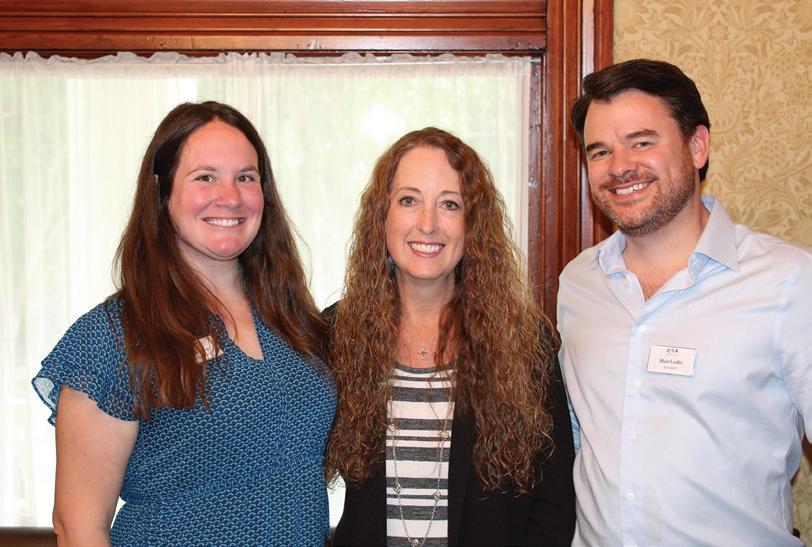


Lena Proft and Joseph Kenney, co-chairs of AYLA’s Health and Wellness Committee, were each awarded the AYLA President’s Award for Outstanding Committee Chair.

Gracie Wood Shepherd was awarded the AYLA President’s Award of Merit.
After these awards were handed out, Harp gave Leake a plaque
partners:
associate attorneys:


The Austin Young Lawyers Association recently won several Awards of Achievement from the Texas Young Lawyers Association.


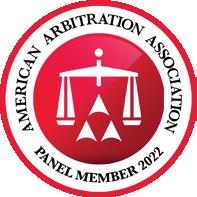

AYLA won the first-place Comprehensive Award. This award was given based on a comprehensive evaluation of the whole range of programming AYLA conducted during the 2022-23 bar year.
AYLA won the first-place Single Project – Service to the Public Award. This award was given specifically for AYLA’s second annual Crawfish Boil. The Crawfish Boil took place on April 15, 2023, and featured AYLA members and their families coming together to raise funds for the AYLA Foundation. More than $15,500 was
raised, which will be used to host events, put on CLEs, and award scholarships.
AYLA won the third-place Single Project – Service to the Bar Award. This award was given spe -
cifically for AYLA’s Family Fall Festival, which invited members of AYLA and the Austin Bar, as well as their families, for a day of food, fun, and games at Hilgers House. The event was free,
though attendees were asked to donate at least one stuffed animal to be given to children at the Austin Bar’s annual Adoption Day event. AL
(L-R):

Austin Bar’s new president, Justice Chari Kelly of the Third Court of Appeals, won the Outstanding Mentor Award from the Texas Young Lawyers Association. Kelly also won this year’s Mentor Award from the Austin Young Lawyers Association.


Dominique McLeggan-Brown,
Kelly. attorney adviser at the U.S. Economic Development Administration. McLeggan-Brown won the Outstanding Young Lawyer Award from the Texas Young Lawyers Association. McLeggan-Brown also won this year’s Outstanding Young Lawyer Award from the Austin Young Lawyers Association. AL

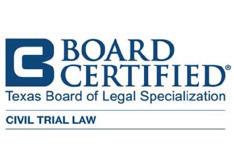
AYLA: Tell us a little bit about yourself and your law practice.
COMBS: I am originally from Odessa, Tex., and came to Austin for law school at UT. I am in my second year of practice at Cagle Pugh, a firm that primarily rep-

resents homeowners’ associations with issues involved in the operation and governance of association-governed communities.
AYLA: How long have you been involved in AYLA and what’s been
your best AYLA experience so far?
COMBS: I am about to start my third year in AYLA, and my best experience was being involved in the Leadership Academy. From that experience, I was able to get to know other members of the local legal community, and Debbie Kelly has been instrumental in helping me get plugged into other areas of AYLA. I particularly enjoy the many health and wellness events that are put on throughout the year.
AYLA: What was your childhood dream job?
COMBS: As a child my dream wasn’t so much the type of job but where. I wanted to travel! In the two years between my B.A. and M.B.A., I lived in Morocco and France.
AYLA: What are some of the things you enjoy most about living in Austin?
COMBS: I really enjoy Austin’s ease of access to outdoor activities. It is so nice to go on a bike ride around Lady Bird Lake or jump into Barton Springs to unwind after a long day.

AYLA: What’s your best piece of advice for fellow young attorneys?
COMBS: Many tasks young associates are asked to do have been done before, so don’t reinvent the wheel. Figure out the issues and your knowledge gaps, then ask someone with more experience for direction. AL
Many tasks young associates are asked to do have been done before, so don’t reinvent the wheel. Figure out the issues and your knowledge gaps, then ask someone with more experience for direction.
The following are summaries of opinions issued by the Fifth Circuit in May 2023. The summaries are overviews of particular aspects of the opinions; please review the entire opinions.
JURISDICTION: In an ancillary action to enforce a settlement agreement, parties could not collaterally challenge jurisdiction in the settled original proceeding and could sue only to enforce the settlement agreement.

Nat’l Oilwell Varco, L.P. v. Auto-Dril, Inc., No. 21-40648, 2023 WL 3411189 (5th Cir. May 12, 2023).
In the original action, National Oilwell Varco (“NOV”) sued Auto-Dril for patent infringement. The parties settled, with Auto-Dril purchasing a license from NOV and both parties releasing all claims against each other. The district court retained jurisdiction “to interpret and enforce” the settlement agreement.
Later, the parties sued each other to enforce the settlement agreement. The parties then learned that NOV never acquired ownership of the patent underlying the original action. In response, Auto-Dril added a claim for fraud and NOV moved to dismiss for lack of jurisdiction. The
district court rejected Auto-Dril’s fraud claim and NOV’s jurisdictional challenge.
On appeal, the court turned away NOV’s challenge to the district court’s jurisdiction to enforce the settlement agreement. NOV argued that, because it never owned the patent, NOV lacked standing in the original action and so the district court never had any jurisdiction to retain as necessary to enforce the settlement agreement.
The court held that NOV is precluded from collaterally attacking the final order in the original action, including the district court’s jurisdiction. The court rejected NOV’s argument that issue preclusion should not apply because NOV, as the original plaintiff, lacked the motivation to litigate jurisdiction. The court reasoned that NOV had the burden to establish jurisdiction in the original action, which is all the motivation necessary.
But the court held that the district court’s ancillary jurisdiction to enforce the settlement agreement did not extend to Auto-Dril’s fraud claim because that claim went beyond enforcement.
The court denied Auto-Dril’s attempt to distinguish recent precedent holding the same—Vikas WSP, Ltd. v. Economy Mud Products Co., 23 F.4th 442 (5th Cir. 2022). The court concluded that the district court’s order retaining jurisdiction “to interpret and enforce the agreement” did not broaden its retained jurisdiction beyond enforcement.
PRESERVATION: Where parties stipulated that setoff defense would not be mentioned at trial, defendant had to at least raise defense in opposition to plaintiff’s motion for entry of final judgment following trial.
Janvey v. GMAG, LLC, 2023 WL 3720203 (5th Cir. May 30, 2023).
After Stanford International Bank was exposed as a Ponzi scheme and placed into receivership, the receiver (Janvey) sued investors to claw back funds.
The receiver sued Magness and related entities on a theory of fraudulent transfer. The pretrial

order did not include any setoff defense. Magness prevailed at trial, but the Fifth Circuit reversed and directed judgment in the receiver’s favor. On remand, the receiver moved for entry of final judgment. Magness opposed but did not raise any setoff defense. The court entered final judgment. Magness posted a supersedeas bond to stay the judgment while he pursued further appeals.
Later, after exhausting those appeals, Magness opposed the release of funds held for supersedeas and sought leave to file a complaint for setoff. In the parallel receivership proceeding, Magness sought leave to file the same complaint. Leave was denied in both actions.
The receiver argued that Magness waived or forfeited his setoff defense by failing to include the defense in the pretrial order. Generally, issues not included in the pretrial order are waived. Magness responded that the parties stipulated that they would not reference the defense at trial, so failing to include the defense in
the pretrial order was not fatal.
On a second appeal, the court declined to resolve that dispute, holding instead that Magness forfeited the setoff defense by failing to raise it in opposition to the receiver’s motion for entry of judgment following remand from the first appeal.
The court rejected Magness’s argument that the setoff defense arose only after all appeals from final judgment were exhausted. The court held that Magness’s setoff defense was ripe after trial and before final judgment. Thus, Magness failed to make the timely assertion of a right and therefore forfeited any setoff defense. AL
The following are summaries of selected civil opinions issued by the Third Court of Appeals during May 2023. The summaries are an overview; please review the entire opinion. Subsequent histories are current as of June 5, 2023.


>ADMINISTRATIVE LAW: Court reverses judgment on immunity grounds.
Texas Educ. Agency v. Devereux Tex. League City, No. 03-2200172-CV (Tex. App.—Austin May 10, 2023, no pet. h.) (mem. op.).
Devereux operated a nonpublic residential-placement facility for disabled students. After an investigation, TEA revoked Devereux’s

approval for contracting. Devereux sued, claiming a violation of its due-process rights. The trial court denied TEA’s plea to the jurisdiction. The court of appeals noted that immunity bars only viable causes of action. The court rejected Devereux’s argument that it had a vested interest in TEA approval. A constitutionally protected property interest requires a legitimate claim of entitlement, not a mere unilateral expectation. The statute gives no right to approval. Thus, TEA’s immunity was not waived. The court also rejected Devereux’s ultra-vires claims. Commissioner has broad authority to approve, deny, or revoke a nonpublic residential-placement contract. Thus, official’s immunity was not waived. The court reversed and dismissed.
TRIAL PROCEDURE: Court rejects application of virtual representation doctrine.
Brown v. Freed, No. 03-21-005560CV (Tex. App.—Austin May 10, 2023, no pet. h.) (mem. op.).
Tenants sued landlords for failing to return their security deposit. After the trial court announced its ruling for tenants, but before signing the judgment, landlords’ property manager sought to intervene. The trial court denied the motion and manager appealed. Manager contended he had standing under the doctrine of virtual representation. The doctrine requires a nonparty to establish that he is bound by the judgment, is in privity of estate with a party, and has an identity of interest with a
party. Manager contended he was bound by the judgment because, as landlords’ agent, he is potentially liable for landlords’ liability to tenants. The court of appeals concluded that manager and landlords were not adversaries at trial, a necessary element of collateral estoppel. Because landlords did not sue manager as a third-party defendant, landlords would have to independently show manager wrongfully withheld tenant’s
security deposit in a subsequent suit. The court dismissed. AL

ing while intoxicated and filed a motion to suppress the evidence. At the suppression hearing, the trial court heard evidence that, on the morning of his arrest, Williams’s neighbor called 911 and reported that she believed Williams had been drinking and driving. Officer John Bowman of the Lampasas Police Department was on patrol when dispatch provided him with the description of the vehicle and advised him that the driver was possibly intoxicated. Bowman found a vehicle “consistent with” the description given by dispatch that was parked in a nearby gas-station parking lot and saw that the vehicle’s brake lights were activated. Bowman pulled into the parking lot and positioned his car to block other vehicles from entering.
feel free to leave when Bowman approached, did not feel that he could tell Bowman that he did not wish to speak with him, and did not feel that he could have backed up without hitting Bowman.
The following is a summary of a selected criminal opinion issued by the Third Court of Appeals from January 2023. The summary is an overview; please review the entire opinion. The subsequent history is current as of May 31, 2023.
SEARCH
TER: Trial court did not abuse its discretion in denying DWI defendant’s motion to suppress evidence obtained during encounter with police.

Williams v. State, No. 03-2100029-CR (Tex. App.—Austin Jan. 27, 2023, no pet.) (mem. op., not designated for publication).
Williams was charged with driv-
When Bowman approached the vehicle and contacted Williams, he could smell a strong odor of alcohol coming from his person, observed that Williams’s speech was slow and slurred, and noticed that Williams seemed “disoriented or confused.” While Bowman was questioning Williams, a second officer, Lieutenant Charles Montgomery, arrived to assist with the investigation. After conducting field sobriety tests on Williams, the officers arrested him for driving while intoxicated.
Williams testified that he had not been drinking on the morning of his arrest, that his neighbor could not have seen him drinking, that he did not see her when he was driving, and that, although he had been drinking the night before, he felt that he was no longer intoxicated that morning. Williams also testified that he did not
He further testified that, when Bowman entered the lot, he had just gotten back into his truck and was preparing to back out when he saw the squad car in his rearview mirror. Montgomery testified initially that he believed Williams would have been able to leave the parking lot by reversing his truck, going around Bowman’s car, and exiting through the unblocked driveway of the parking lot. However, he later testified that he did not know if Williams would have been able to back up. In addition to the testimonies of Bowman, Montgomery, and Williams, a video recording of the stop was admitted into evidence. Following the hearing, the trial court denied Williams’s motion to suppress and later made findings of fact and conclusions of law. One of the issues that Williams raised on appeal was that his initial interaction with Bowman was an investigatory detention, and Bowman lacked reasonable suspicion to detain him.

The appellate court affirmed the denial of the motion to suppress. The opinion provides an excellent summary of the law on consensual encounters. The court concluded that the initial interaction between Bowman and Williams was consensual and did not rise to the level of a detention. The court observed that what constitutes a sufficient restraint on liberty to implicate the Fourth Amendment will vary depending

on the circumstances. Here, Bowman parked his car in such a way as to block only one entrance to the parking lot, neither the car’s siren nor its overhead lights was activated, and the trial court found that it would have been possible for Williams to drive around Bowman’s car if he had chosen to do so.
Also, during their initial interaction, Bowman approached the driver’s side of Williams’s truck and spoke to him “in a friendly tone” through the window, which was already lowered, and Bowman “did not draw his service weapon, wield a flashlight, or make any commands.” Moreover, there was no evidence that Bowman physically touched Williams, ordered him to remove the keys from the ignition, or utilized the squad car’s spotlight or loudspeaker. Further, “Officer Bowman never told Williams that he was not free to leave, and Williams never attempted to do so.”
Finally, the court concluded that “the subjective beliefs of both the officers and Williams are irrelevant to our inquiry.” Thus, it was irrelevant that Williams did not feel free to leave and that the officers believed it might have been difficult for Williams to leave. AL
The following is a summary of a selected opinion issued by the Supreme Court of Texas in May 2023. The summary is intended as an overview of selected aspects of the opinion only; please review the entire opinion.
involved tampering both prior to the initial sale of the vehicles and during post-sale recall and service campaigns. The manufacturers initially installed the illegal defeat-device software before importing the vehicles to the United States for sale.
“Dieselgate” auto manufacturers subject to specific personal jurisdiction in Texas, despite contacts with Texas being undifferentiated from those with other states involved in nationwide scheme.
State v. Volkswagen Aktiengesellschaft, No. 21-0130 (Tex. May 5, 2023).
This consolidated interlocutory appeal arises out of the “Dieselgate” scandal, which involved the intentional installation and use of illegal “defeat devices” by certain German auto manufacturers into imported vehicles in order to avoid compliance with U.S. emissions standards. The vehicles were marketed as environmentally friendly “clean diesels,” but in fact the defeat devices would cause the vehicles to perform differently during emissions testing than during normal operation, when the vehicles’ emissions would be “substantially higher”— up to 40 times the legal limits.
The scheme was active from approximately 2006 to 2015, and
All of the vehicles in question were imported through an exclusive distributor, which had entered into detailed Importer Agreements with the manufacturers. Pursuant to the Importer Agreements, the manufacturers retained both direct and indirect control over post-sale recalls, warranty repairs, and other service work, such that the distributor was contractually required to deploy its network of local dealerships to complete recall and service campaigns in accordance with the manufacturers’ directions, and the manufacturers retained contractual control over the dealerships with regard to these campaigns. The dealerships were also required to use the manufacturers’ proprietary software distribution system in servicing the vehicles. Finally, the Importer Agreements established that the manufacturers had to pay for all costs associated with all warranty repairs and recall work.
After the vehicles in question had been sold, malfunctions in the defeat-device technology began to cause issues in certain vehicles, requiring expensive repairs that were covered under the manufacturers’ warranty. In response, the German manufacturers developed updates to the defeat-device software that were designed to prevent further damage, facilitate continued use of the defeat devices, and avoid the devices being discovered. The software updates were uploaded to servers in Germany, which then synchronized with the distributor’s and dealerships’ servers. The manufacturers then created fake recall campaigns and took advantage of regularly scheduled dealer services to ensure that the updates were automatically installed in all affected vehicles.
VW Germany previously pled guilty to federal criminal charges for violations of the Clean Air Act and agreed to pay a criminal
fine of $2.8 billion. The German manufacturers also settled federal civil claims filed by the EPA, but no agreement was entered to bar further civil suits by state or local governments; instead, each state expressly reserved the ability to sue the manufacturers for damages. The manufacturers’ total liability from the federal claims is estimated to exceed $20 billion.
In this case, the State of Texas and several local governments sued the manufacturers for violations of state environmental laws. Summary judgment on the basis of preemption was granted in favor of the defendants on the pre-sale claims, but the post-sale recall claims survived. The manufacturers filed special appearances contesting personal jurisdiction, contending that there was no basis for specific personal jurisdiction because (1) all contacts with Texas were limited to the distributor and dealerships, and could not be imputed to the manufacturers; and (2) any U.S. contacts by the manufacturers were targeted at the country as a whole, and not Texas specifically.
The trial court denied the jurisdictional challenge, and the manufacturers appealed. A divided appellate court reversed and dismissed, finding that the defendants’ actions were directed towards the United States as a whole and not Texas specifically, and thus were insufficient to constitute purposeful availment of the privileges of conducting activities in Texas.
The plaintiffs appealed to the Texas Supreme Court, which framed the issue before it as “whether a foreign defendant can be subject to personal jurisdiction in this forum when its contacts in Texas are undifferentiated from its contacts with other states”— specifically, whether the relevant facts gave rise to Texas courts’ specific personal jurisdiction over the manufacturers based on the manufacturers’ intentional post-sale tampering with vehicles owned, operated, and serviced in Texas.

The Supreme Court found that the manufacturers had established minimum contacts with Texas by exercising their direct
contractual control over the distributor and their direct and indirect control over the dealerships.
The Court also noted that the manufacturers’ control over the entire scheme, which was granted and exercised under the Importer Agreements, allowed them to “perpetrate a fraud on the State of Texas and its citizens under the guise of recall and service campaigns.” Noting that states have an interest in protecting against torts that take place within their jurisdiction, and that the U.S. Supreme Court has recognized state interests in protecting regulatory schemes, the Court found that “engaging the forum with the specific intent to take actions to thwart the enforcement of an applicatory scheme could not be more purposeful.”
As for the argument that a nationwide campaign wherein the contacts among states were undifferentiated in kind and quality could not form the basis for purposeful availment, the Court held that personal jurisdiction is a forum-specific inquiry which requires no consideration of behavior that may or may not have been directed elsewhere. As the Court explained, “[t]he contacts an entity forms with one jurisdiction do not negate its purposeful contacts with another.”
The Court held that the manufacturers were subject to specific personal jurisdiction in Texas; accordingly, it reversed the court of appeals’ judgment and remanded to the trial court for further proceedings. AL
This is the first in a series of eight articles about the Travis County Forensic Mental Health Project.
The Travis County Forensic Mental Health Project delivered its recommendations to the Travis County Commissioners in March 2023. The goal of these recommendations is to provide solutions other than jail to address mental health and substance abuse disorders in the county.
The project is a joint effort of the Travis County Commissioners Court and the Dell Medical School at The University of Texas at Austin. The project’s steering committee began meeting in May 2022.
In the 45-page recommendation document, the steering committee first defined the problem it was seeking to solve:
“People become trapped in or cycling through jail waiting for behavioral health services and solutions.” (The committee terms this the “intersection.”)
Next, the committee defined its planning principles:
• “The needs of the people stuck in the behavioral health/ criminal justice intersection, including crime victims, supplant the individual aims of the planners.
• “We will correct sociodemographic inequities.
• “We will make decisions by consensus, based on data, best evidence- and strength-based practices.
• “We will hold conversations that are respectful, open-minded, and results oriented.
• “We will build from and collaborate with existing groups focused on the intersection, including gaining as much community input as feasible while balancing a timely response.”
The vision of the project is that jail should not be used as a treatment, a holding space, or a solution for mental health or substance abuse conditions. Behav-
Dr. Steve Strakowski, Committee Chair - Dell Medical School
Chief Joseph ChaconAustin Police Department
David Evans - CEO of Integral Care
Quiana Fisher - Homelessness Response System Strategy Director at Echo

José GarzaTravis County District Attorney
Delia Garza - Travis County Attorney
Dianna Grey - Homeless Strategy Officer for the City of Austin

Hon. Guy HermanTravis County Probate Court

Sheriff Sally HernandezTravis County Sheriff
Dr. Audrey KuangCommUnityCare Health Centers
Parker LaCombe - Director of Peer Support at Austin State Hospital
Hon. Tamara Needles427th District Criminal Court
Adeloa Ogunkeyede - Travis County Chief Public Defender
Pilar Sanchez - County Executive for Health & Human Services
Sandra SmithVice President of Via Hope
Reggie Smith - Founder and Chair of the Board of Building Promise USA
Terra Tucker - Texas State Director for the Alliance for Safety and Justice
ioral health conditions should be treated through clinical care and social supports.
Over the course of 100 days, eight workgroups met repeatedly to come up with recommendations for each of their respective topics: adjudication, alternatives to competency restoration, Central Booking, in-jail interventions, law enforcement interaction and arrest, legal representation, mental health evaluation, and successful re-entry and jail prevention.
“In an ideal system, when a peace officer is called to or encounters an individual potentially expressing behaviors from a mental health (including substance use) disorder, real-time clinical support is provided,” the recommendation document says.
Local mental health authority Integral Care’s Expanded Mobile Crisis Outreach Team (EMCOT) is an example of such a program
that can provide real-time clinical support.
EMCOT is a partnership between Integral Care and law enforcement agencies to provide police/mental health co-responses to divert individuals into appropriate care settings rather than jail. The priority of EMCOT is to find the most appropriate location for a person to be evaluated and then appropriately treated—or “triaged.”
If appropriate, EMCOT can recommend the person be transferred to the emergency departments at Dell Seton Medical Center, St. David’s, Ascension Seton, or Baylor Scott & White. “Crisis respite units” operated by Integral Care are also available at Next Step, the Herman Center, the Inn, and 15th Street. The Sobering Center also offers substance intoxication recovery beds.
Despite EMCOT’s efforts, many people to whom EMCOT responds
TRAVIS COUNTY FORENSIC MENTAL HEALTH PROJECT’S STEERING COMMITTEE MEMBERS:The vision of the project is that jail should not be used as a treatment, a holding space, or a solution for mental health or substance abuse conditions.
Behavioral health conditions should be treated through clinical care and social supports.FROM LEFT: 427th District Court Judge Tamara Needles, Travis County Probate Court Judge Guy Herman, and Travis County Chief Public Defender Adeloa Ogunkeyede. These three serve on the steering commitee for the Travis County Forensic Mental Health Project.
end up in one of two scenarios: back to where they started (frequently homeless and on the streets), or criminally charged.
“873 people with a mental health identifier are waiting in jail for an alternative solution,” the document says. “While in jail, people may be identified as incompetent to stand trial and be ordered to receive competency restoration.”
Austin State Hospital is a frequent destination for competency restoration, though it “lacks capacity for the volume of admissions requested and is frequently not the most clinically appropriate venue for this process,” the document says.


“In an ideal system, the clinician and peace officer can make a shared decision to either take the person to Central Booking for legal processing or invoke a ‘pre-arrest’ diversion to an alternative intervention, namely a diversion center,” the document says.

In this system, the diversion center is a secure facility that provides thorough clinical evaluation, offers legal support for those who have legal charges, and initiates and refers the individual for mental health disorder treatment. Admission to the diversion center may be voluntary or offered in lieu of legal processing and jail.
“The goal of the diversion center is to provide a location and services to help decriminalize mental health disorders while supporting the individual’s needs for long-term care and support in the community and processing any legal charges that are not or cannot be dismissed,” the document says. AL





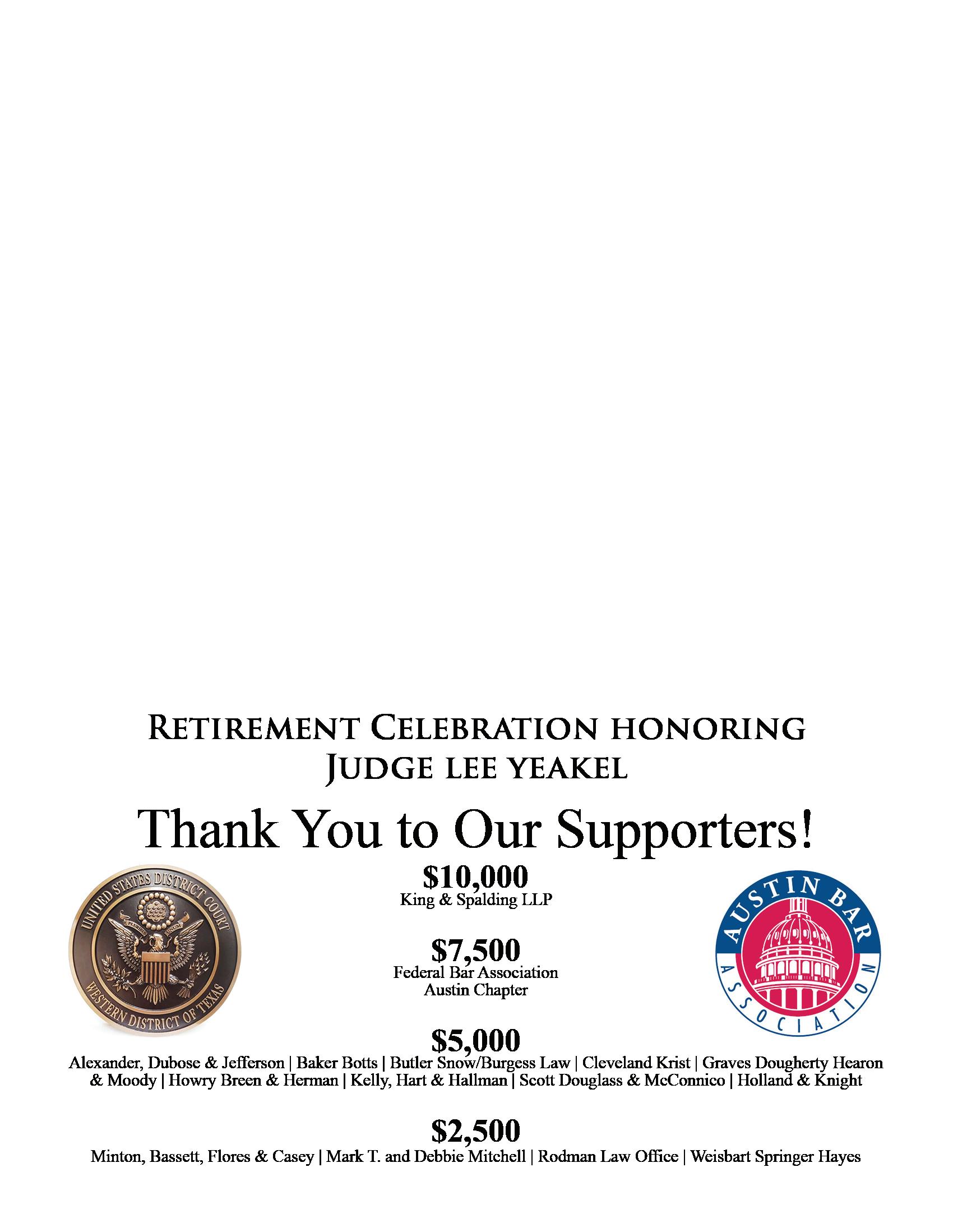
The Austin Bar Association and the Austin Chapter of the Federal Bar Association jointly hosted a retirement reception for Judge Lee Yeakel of the U.S. District Court for the Western District of Texas—Austin Division.
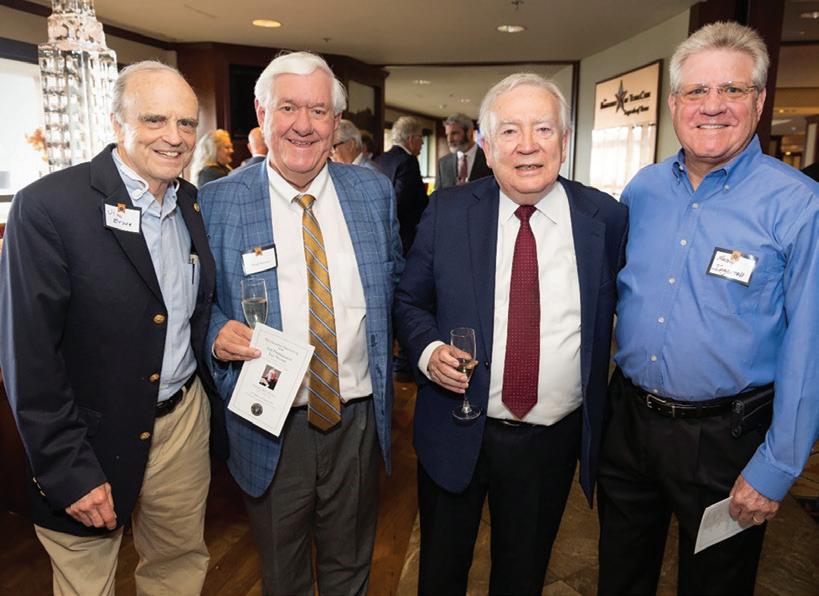


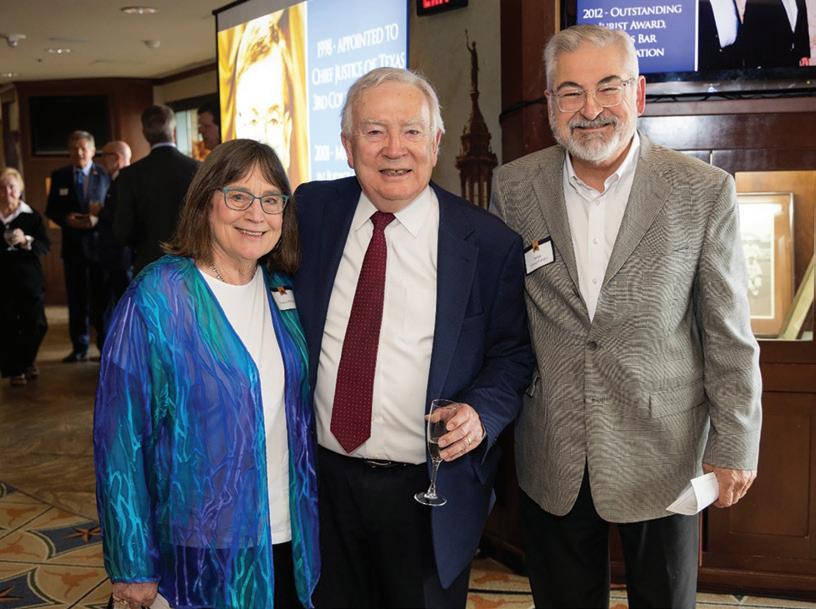
More than $50,000 was raised. This money will go toward the Judge Lee Yeakel Scholarship fund at The University of Texas.
Congratulations to Judge Yeakel, who served the Western District of Texas since 2003. The Austin Bar wishes you the best of luck as you embark on a new journey as senior counsel at King & Spalding LLP’s Trials and Global Disputes practice group in Austin.
At her last board meeting at the helm of the Austin Bar Association, outgoing President Amanda Arriaga presented her awards of recognition for the 2022-23 bar year.
Rachael K. Jones received the President’s Outstanding Committee Chair Award. Jones is the chair of the Communications Committee, which oversees the publication of Austin Lawyer

Incoming Austin Bar Association President-Elect Mary-Ellen King received the President’s Award of Merit.


Texas Access to Justice Foundation (TAJF) Executive Director Betty Balli Torres received the Emily C. Jones Lifetime Achievement Award from the Texas Access to Justice Commission (TAJC).
Torres received the award at TAJC’s Champions of Justice Gala on April 25 in Austin, in recognition of her contributions to improving Texans’ access to justice.
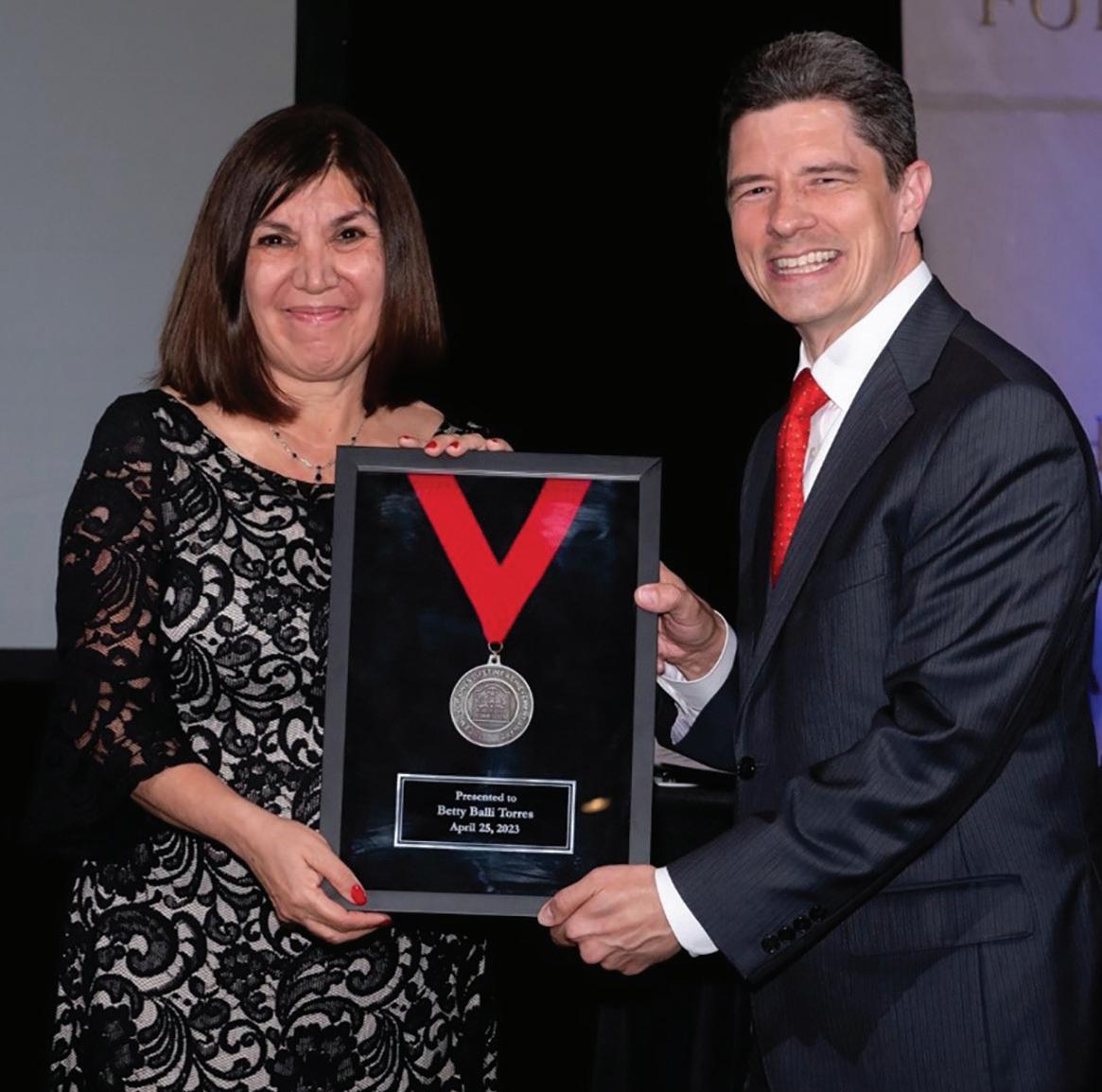
The award is named after TAJC’s first executive director and is the commission’s highest honor given for a career dedicated to supporting legal services for Texans in need.
“It is an honor to receive this award, named for my dear friend Emily C. Jones,” Torres said in a press release. “There is still much work to be done to make sure the doors of our courthouses are open to all, especially those who cannot afford help. I will continue working with colleagues from throughout the state and country to improve resources for access to justice for all Texans.”
Torres has served as the executive director of TAJF, one of the largest funding sources for legal services to low-income Texans,
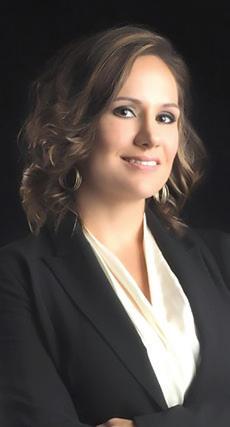
since 2001. Under her leadership, the foundation now grants more than $50 million annually to over 35 legal aid organizations statewide, according to a press release.
Torres played a major role in creating the Prime Partner Bank Program. Through this program, financial institutions pay higher levels of interest on lawyer trust accounts, which TAJF then uses to distribute grants to legal aid providers throughout the state.
Additionally, Torres worked with TAJF’s board of directors and the Supreme Court of Texas to give emergency legal aid for families facing imminent eviction. Through a partnership with Texas Department of Housing and Community Affairs, more than $40 million has been granted to prevent evictions of Texans, according to a press release.
“Betty’s efforts help us bring access to justice to all Texans closer to reality,” TAJC Chair Harriet Miers said in a press release. “Her extraordinary spirit of putting others first and demonstrated commitment to legal services has improved our society and inspired others. Through her initiatives and awareness of the valuable
role legal aid plays, Betty has enhanced access for vulnerable Texans unable to pay for legal assistance, and we are more than grateful for her efforts.”
For more information about TAJF, go to teajf.org. For more information about TAJC, go to www.texasatj.org. AL
Ciara Parks received the President’s Award for Outstanding Director. Congratulations to these award winners on their continued service to our profession,Robynn Fletcher, Anthony “Tony” J. Nelson, and Judge Eric Shepperd were the honorees at the 2023 Austin Black Lawyers Association (ABLA) Andrea Pair Bryant Legacy Luncheon.

The trio were honored for their significant contributions to the African American legal community.
Robynn Fletcher graduated with a B.S. in chemistry from The University of Texas at Austin and a J.D. from the UT School of Law. She has been a solo practitioner since 2005 with a primary focus on child welfare cases. She has advocated for hundreds of parents and children in Travis and Williamson county courts
throughout her career. Fletcher is a past president of ABLA and past chair of the Court Appointed Family Advocates (CAFA) Section of the Austin Bar Association. She is currently serving as the secretary of the Austin Black Lawyers Foundation. Fletcher is a native Austinite. Her ultimate joy is spending time with her daughter and proud Girl Scout, Sydni.
Anthony “Tony” J. Nelson currently serves as the Federal Court Litigation Team Leader for the Travis County Attorney’s Office, representing Travis County and its elected officials and employees in federal court litigation matters. Nelson graduated from the University of Maryland and then UT School of Law. He started his
career as an assistant attorney general in the Law Enforcement Defense Division before transitioning to private practice. He worked in the firms of Allison & Associates; Bickerstaff, Heath, Smiley, Pollan, Kever & McDaniel LLP; and Thomas, Hudson & Nelson LLP. Nelson’s community involvement includes ABLA and serving as co-chair of the Austin Bar Association’s former Diversity Committee (now the DEI Committee) since its inception. Nelson and his wife, Marie, are proud parents of two sons, Wesley and Michael; daughter-in-law, Jocelyn; and grandson, Aiden.
Judge Eric Shepperd joined the bench as judge of the Travis County Court at Law No. 2 in 2007. He earned his B.A. from Andrews University and his J.D. from UT School of Law. He served as an assistant attorney general in the Law Enforcement Defense Division with fellow honoree Tony Nelson. He then served as director of litigation for the Travis County Attorney’s Office before he was elected judge. He is a past president of both ABLA and the Austin Bar. He has also served as chair of the Red Cross of Central Texas and Austin Habitat for Humanity. In addition, he has led the
Texas Center for the Judiciary and the Austin Bar Foundation. He is board-certified in civil trial law by the Texas Board of Legal Specialization.

In attendance at the Legacy Luncheon were many judges and justices from Travis County criminal and civil courts and the Third Court of Appeals. ABLA thanks our sponsors for such a successful event.
The Legacy Luncheon is named after Andrea Pair Bryant, one of the founders of ABLA, who was always a “woman with a mission” and an iconic figure who held a deep passion for law, the arts, and volunteerism. AL


Three Austin Bar Association members were recently honored by the State Bar of Texas for their writing.

The “Stars of Texas Bars” presents several awards each year for outstanding articles published by local bar associations.
The Austin Bar submitted articles published in Austin Lawyer between May 2022 and April 2023 to be considered for the awards.

Rick Cofer and Megan Rue of Cofer & Connelly PLLC won this year’s Stars of Texas Bars Award for News Article for their article “What’s in a Name? That Which We Call Weed.” The article is available to read online in the June 2022 issue of Austin Lawyer.
Wayne Schiess won this year’s Stars of Texas Bars Award for Series of Articles – Feature/General Interest for his series of articles, “Readable Contracts.” This series of articles is available to read online in the July/August 2022 –November 2022 issues of Austin Lawyer. Schiess is a senior lecturer at The University of Texas’s David J. Beck Center for Legal Research, Writing, and Appellate Advocacy. He also runs LegalWriting.net, where he publishes his articles on legal writing best practices. Schiess’s legal writing articles have regularly appeared in Austin Lawyer for the past 15 years.
Congratulations to these authors!
Digital copies of Austin Lawyer are available at issuu.com/austinbar.
The board of directors of the Travis County Women Lawyers’ Association Scholarship Fund, Inc. had the honor of awarding $2,000 from four separate scholarships to nine remarkable women attending The University of Texas School of Law. Most of the awardees were able to attend the Travis County Women Lawyers’ Association (TCWLA)’s mentor-mentee luncheon, at which Women’s Month was celebrated with the Women and the Law Section of the State Bar of Texas.
Scholarship
The Judge Mary Pearl Williams Scholarship honors students

who display leadership skills and community involvement. The Williams Scholarship was jointly awarded to Olivia Horton and Courtney Weber.
Horton is a 3L who helped create training classes for law students to represent individuals in Title IX cases.
Weber is a 2L who is an articles editor for the Texas Review of Litigation, a research assistant for a professor, and a volunteer on many other legal service projects.

Judge Margaret Cooper Scholarship
The Judge Margaret Cooper Scholarship honors students who demonstrate financial need, per-
severance in the face of adversity, and community service. The Cooper Scholarship was jointly awarded to Priyham Madukhar, Alexandra McIntosh, and Maiya Werba
Madukhar is a 2L who was in Teach for America for two years and now serves as a pro bono scholar for the UT expunction clinic. She is co-president of the Public Interest Law Association and a staff editor for the Texas Journal on Civil Liberties and Civil Rights.
McIntosh is a 2L who participates in the Title IX pro bono clinic. She volunteers at the Support Parents’ Education, Advocacy, and Knowledge (SPEAK) clinic, which works with parents
of disabled children, as well as a fundraiser for the Texas Law Fellowships.
Werba is a 1L who is active with the Texas Law Disability and Neurodivergent Alliance, is a 1L rep for the Board of Advocates, and volunteers for projects assisting with gender affirmation and deported veterans.
The Ann Forman Scholarship honors students who demonstrate an interest and aptitude in child welfare law. The Forman Scholarship was jointly awarded to Tran Le Abraham and Jaria Martin Abraham is a 2L who serves as a mentor with the Asian Pacific Students Law Association, pre -
Member: FINRA/SIPC

viously worked for the New York State Education Department’s General Counsel office, and is an advocate in the children’s rights and juvenile justice clinics.
Martin is a 2L who is studying for a joint degree in law and social work. She is an officer in the Thurgood Marshall Legal Society (TMLS) and was the coordinator of TMLS’s Black Women’s Brunch. She is also an editor for the Texas Journal on Civil Liberties and Civil Rights.
The Farris-Cisneros Scholarship honors women of color who are community focused and demonstrate leadership qualities. The Farris-Cisneros Scholarship was jointly awarded to Valorie Marks and Kiara Vaughters Marks is a 2L who is a mentor for undergraduate students considering the legal field; a diversity, equity, and inclusion director for the Texas Business Law Society; and a Student Bar Association
State Bar of Texas representative.
Vaughters is a 2L who is a staff editor for the American Journal of Criminal Law, ABA representative to the Student Bar Association, and Thurgood Marshall Legal Society 1L coordinator. She also works with students in YMCA Youth and Government Conferences.
In September 2023, the Farris-Cisneros Scholarship will be split in two to honor retired judges Lora Livingston and Orlinda Naranjo. A fundraiser is scheduled
to take place on Thursday, Sept. 28, 2023 at Hilgers House, to formally announce the creation of the Judge Lora Livingston and Judge Orlinda Naranjo scholarships. AL

The adoption of Artificial Intelligence (AI) powered tools has the potential to transform various industries, including the legal industry. While the emergence of these technological advancements has the potential to deliver better client service and increase value, the risks must also be considered. This article highlights some of the ethical considerations for attorneys using AI in their practice.
(The below is an excerpt from TLIE. Please visit tlie.org for the full article.)
AI has been defined as “cognitive computing” or “machine learning”. In a nutshell, AI tools are trained to perform tasks that typically require human intelligence. ChatGPT, perhaps the most popular generative AI tool, is a large language model (LLM) that uses learning techniques to generate human-like responses to “prompts” or natural language inputs. In the legal context, AI can assist with an array of legal tasks including electronic discovery, litigation analysis, due diligence reviews, drafting of legal documents, legal research, and due diligence reviews.
Under comment 8 to ABA Model Rule 1.1 and Texas Rule 1.01, competent representation requires an awareness of the “benefits and risks associated with relevant technology.”
In August 2019, the ABA adopted Resolution 112, which provided in part
Under Rule 1.1, lawyers also must have a basic understanding of how AI tools operate. While lawyers cannot be expected to know all the technical intricacies of AI, they are required to understand how AI technology produces results.
It’s essential to understand the limitations of AI. ChatGPT has a knowledge cutoff of September 2021. The model is unaware of anything that happened after that date, including recent case law, legislative and regulatory enactments. Additionally, there are
numerous examples of language models producing inaccurate answers. One example making the rounds is when the SCOTUS blog asked about Ruth Bader Ginsburg’s most noteworthy opinions, ChatGPT incorrectly identified her as the author of a dissent in Obergefell v. Hodges.
Communication
A lawyer’s duty of communication is also implicated. Under ABA Model Rule 1.4 and Texas Rule 1.03, the lawyer must reasonably consult with the client about the “means” by which the client’s objectives are to be accomplished.
ABA Resolution 112 provides:
A lawyer’s duty of communication under Rule 1.4 includes discussing with his or her client the decision to use AI in providing legal services. A lawyer should obtain approval from the client before using AI, and this consent must be informed.
Under ABA Rule 1.6 and Texas Rule 1.05, lawyers are required to protect all client information from both intentional and inadvertent disclosure. Lawyers must take “reasonable efforts” to prevent inadvertent or unauthorized disclosure of client information.
ABA Resolution 112 provides:
To minimize the risks of using AI, a lawyer should discuss with third-party AI providers the confidentiality safeguards in place. AI should not be used in the representation unless the lawyer is confident that the client’s confidential information will be secure.
CONCLUSION - The advent of AI-powered tools has the extraordinary potential to reshape the legal industry, increasing efficiency and value, and producing cost savings. With all new technologies, we cannot only consider the benefits, but the risks as well. As attorneys integrate these tools, they must ensure they uphold their ethical obligations. www.tlie.org
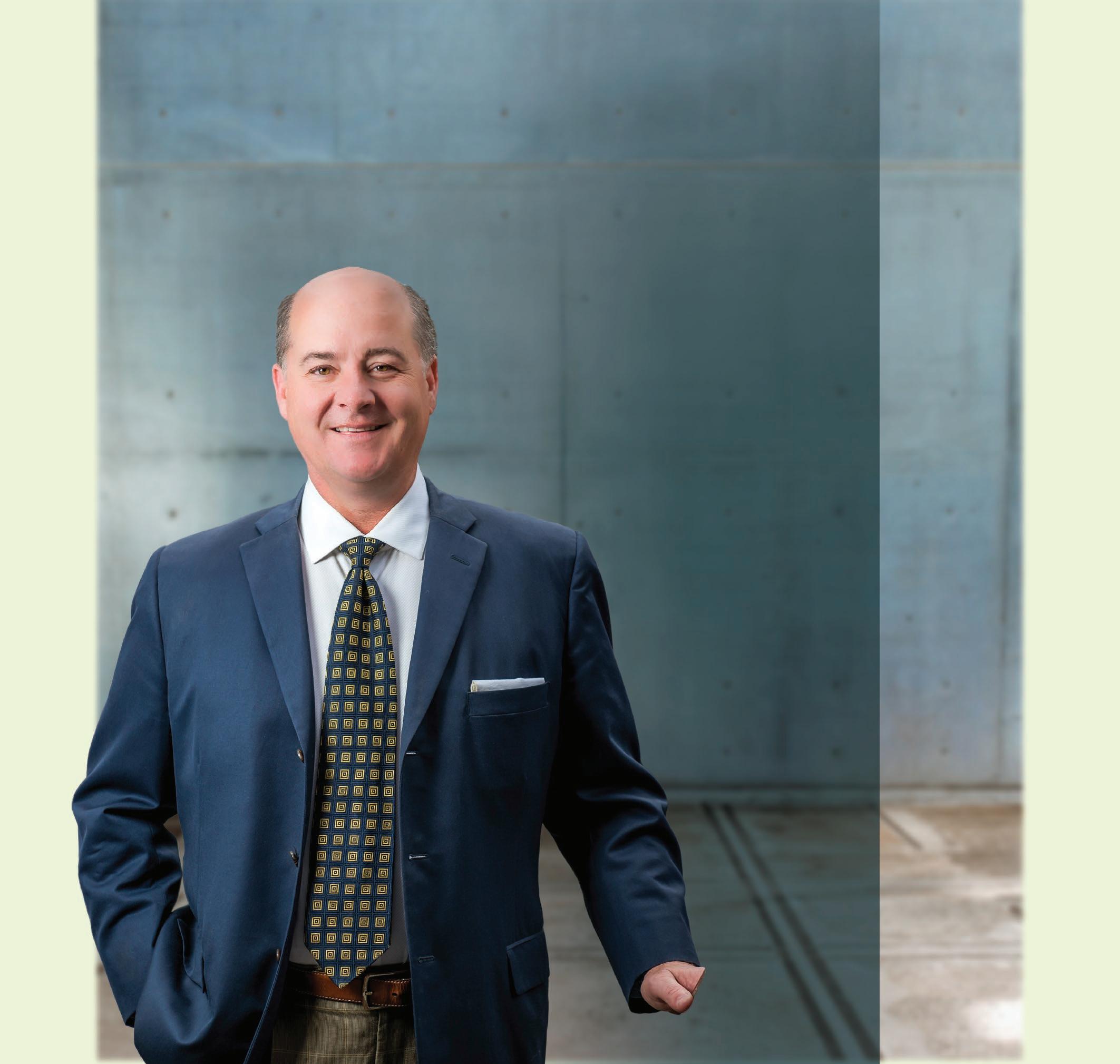
The Girls Empowerment Network (GEN) has received funding from the U.S. Department of Justice and the Texas Bar Foundation (TBF) to expand its Girl Connect school program to include Texas girls who are involved with the Texas juvenile justice system.
Currently, Girl Connect serves girls across 84 program sites throughout Texas, including Austin. Using research-based, trauma-informed techniques, the program teaches girls risky behavior avoidance, goal setting, healthy relationship skills, growth mindset, and positive communication.
Using funding from the DOJ’s Office of Juvenile Justice and

Connect program has been developed and is being piloted for the adolescent girls in the McLennan County State Juvenile Correctional Facility in Mart, Texas.
The Girls Connect school program prioritizes low-income campuses.
“Girls of color are most impacted by the juvenile justice system,” said Angela Montijo, GEN’s juvenile justice program facilitator and licensed social worker. “Often, there is a history of trauma, substance use, intersectionality, oppression, and systemic barriers involved in their experience.”
In the 2020-21 school year, 95 percent of GEN’s programs were at schools participating in the Title 1 program of the U.S. Depart-
have high populations of children from low-income families.
GEN’s programs have a proven track record of benefiting at-risk girls in schools, the press release said.
Across four years of programming, girls ages 8-18 show significant increases in overall self-efficacy, and an increase in self-efficacy in seven specific domains: collaboration, communication, confidence, coping skills, creativity, critical thinking, and bonding, the press release said.
“Extending this program to girls involved in the juvenile justice system in ways that are culturally relevant will give all girls essential tools for their long-term well-being and resilience,” said
tional facilities in spring 2024,” said Montijo.
Plans to expand Girl Connect to juvenile jails date back to before the COVID-19 pandemic. Though the pandemic derailed the initial plans, it also gave GEN time to refine their idea and expand its scope. With the proliferation of virtual meeting technology such as Zoom during the pandemic, suddenly virtual Girl Connect programs became feasible.
“This gift of time prepared us to apply for and win our first federal grant to implement programming with the potential to change the trajectory of each girl’s life,” said Julia Cuba Lewis, CEO of GEN.
The Girl Connect program is associated with lower disciplinary issues, higher self-efficacy, bonding, prosocial behaviors, academic achievement, and school attendance, the GEN press release said.
In addition to programs in Austin and Travis County, GEN and Girl Connect programs currently also operate in schools in Williamson, Hays, Caldwell, Harris, Bexar, and Dallas counties.
GEN, originally called The Ophelia Project, is a 501(c)(3) created in 1996 by concerned mothers raising adolescent girls in Austin. Inspired by the book Reviving Ophelia by Mary Pipher, these mothers met to address an increasing trend among middleschool-aged girls—a systematic decline and sometimes permanent loss of self-esteem, the outcome of which can be devastating: epidemic levels of anorexia/bulimia, self-mutilation, depression, low academic achievement, teen pregnancy, and drug abuse.
Judge Karin Crump, presiding judge of the 250th Civil District Court of Travis County, and David Courreges, past president of the Austin Bar Association and current member of the State Bar board of directors, first discussed the idea of an Austin Bar and AYLA Leadership Academy in 2010.
The idea took root while Courreges was assisting Judge Crump in her campaign for a justice of the peace position.
“During the campaign, David heard me talk a lot about the leadership class in which I had been involved in Dallas,” said Crump. “It was one of the best experiences of my early career—getting to know other young lawyers, learning from local, city, county, and state government leaders, working on a project with fellow class members, and finding opportunities to lead together.”
That JP election campaign was unsuccessful, but the two soon discussed and began planning their next collaboration.
“We started talking about an Austin-based leadership academy,” said Courreges. Within an hour and a half, “we came up with the framework of what we were going to do.”
Once the two had the go-ahead from the Austin Bar’s then-president, David Chamberlain, whom they described as extremely interested in community-based programming, they moved quickly to get the first class started.
They leaned heavily on Crump’s leadership skills and experience.
“I took it as a learning opportunity for me to get insight … on how she was getting so many people to do good work for the community effortlessly,” Courreges said. “And what I found out is that it took a lot of effort.”
Crump and Courreges looked for example programs and quickly found that, at that time, the Dal-
las Association of Young Lawyers Leadership Class, which was approaching its 10th year, was one of the few programs of its kind.
“With permission, we used the Dallas blueprint, so we weren’t starting from scratch,” said Crump.
The two worked to tweak the Dallas program to tailor it for the Austin community.
“We are lucky in Austin to have a few more cool resources than some other cities, so we took full advantage of that,” Courreges said.
The two worked well together, with different skillsets but a similar vision.
“Part of the idea was to create a pathway to leadership within the Austin Bar and AYLA,” said Courreges. “Bar participation was low, and we noticed that we were losing some of our best talent to other non-profit boards. And it wasn’t because they didn’t want to lead, but because they weren’t asked; they didn’t have a path, so they went other places. It was a travesty and so we wanted to correct it.”
“We wanted Austin Bar and AYLA board candidates to say that they have completed the Leadership Academy almost as a prerequisite to Austin Bar leadership,” Crump said.
At various points since the founding of the Leadership Academy, large majorities of each board have been Leadership Academy graduates.
Crump and Courreges put their heads together, creating an outline of the sessions, including people they could invite to speak to this group of prospective leaders.
“David had all these great connections at the Capitol and at state government, and I had fantastic contacts from my experience as TYLA president and on the State Bar board of directors,” said Crump. “We were able to combine those to start getting some really big names early on.”
Once they secured several distinguished speakers, others began to view an invitation to speak to the group as an opportunity and privilege, they said.
It was important to Crump and Courreges to have every detail in place before they began recruitment for the first leadership class. They lined up their speakers and then began calling everyone they knew to encourage applications.
“I think our panic was that we were going to build this thing and nobody was going to apply,” said Crump.
Their worry was unfounded, as they received so many applications that they were not able to accept all applicants into the first class.
The first Austin Bar & AYLA Leadership Academy class was a success, and every class since has continued to produce bar and community leaders and projects that benefit the legal community.
Crump credits this to some of the icebreakers and personality tests each class participates in at the annual orientation. These icebreakers help members get to know each other, understand themselves and their peers better, and provide a foundation for collaboration.
“Orientation provides an opportunity for leaders to share how they got where they are in leadership,” said Crump. “We all have the common experience of law school and legal careers. Some leadership opportunities happen when others open doors or pull
you up, but they also happen when things you attempt don’t work out as planned.”
In addition to hearing from icons of the profession and community leaders, each year’s class collaborates on a class project.
“This gives the participants the skills and connections with one another to create a project that benefits the legal community,” explained Courreges, who has been especially pleased with projects that started with the Leadership Academy and ultimately impacted the whole of the Texas legal community.


The first class’s project was Law Prom, which raised funds for Texas Rio Grande Legal Aid. The most recent (2022) class’s project raised funds to renovate the victim-witness room at the Gardner-Betts Juvenile Justice Center.
Both Crump and Courreges are extremely proud of the Leadership Academy and how it has grown and expanded over time.
“It is very important to me for every lawyer to know that they have an opportunity to lead and make a difference in our community,” said Crump. “Thanks to the skills learned and contacts made through the leadership program, losing that JP race opened a door for me to run for district judge. Of course, that turned out to be the right path for me. Every loss opens a door that leads you to a new opportunity, so make the most of it!” AL
The fourth Travis County Expunction Expo took place on May 20, 2023. More than 300 applicants had prequalified to have their records expunged.
The expo was a joint production of the Travis County District Attorney’s Office, the Travis County Attorney’s Office, and the Travis County District Clerk’s Office. Legal services were provided by the Capital Area Private Defender Service, the Travis County Public Defender’s Office, Volunteer Legal Services of Central Texas, and the Travis County Law Library.
Representatives of the Travis County Workforce Development, Indeed, and Austin Community College were also on hand to provide information about opportunities available to applicants who successfully



got their records expunged.
District 3 Councilmember José Velásquez attended the expo.
“We are excited this day is finally here,” Velásquez said to CBS Austin. “We know that not having stable housing, stable employment, not being able to further your education can all inform if somebody is going to end up back in jail or on a path to recidivism.”
Travis County District Clerk Velva Price said the event took about eight months to organize.


“It’s such a relief,” Price said. “It’s so wonderful to see people trying to get their pasts corrected.”
This is the fourth expunction expo Travis County has held in the past two years.
“We are on track to have our most successful expunction expo to date,” said Travis County District

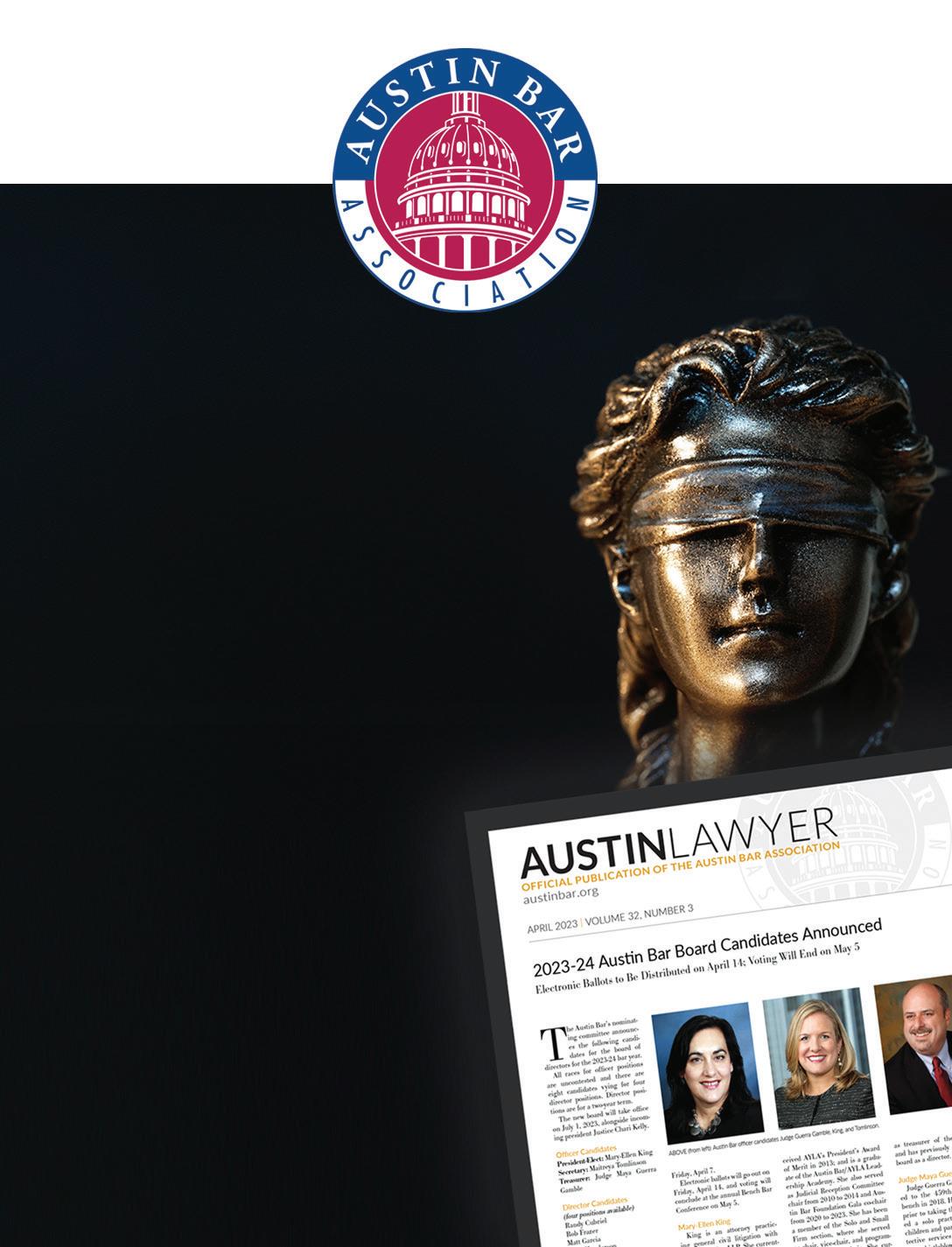
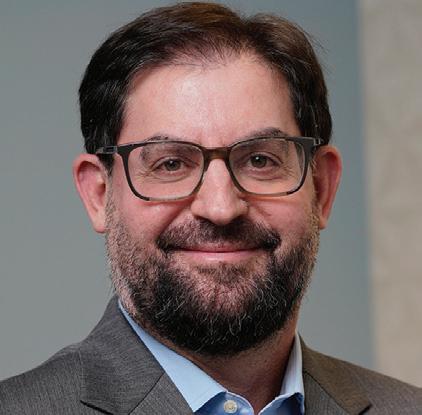

Alyssa Johnson is an Austin lawyer and speaker on race literacy and lawyer well-being. She volunteered her legal services to the expo and filed petitions for about 15 clients to have certain criminal records expunged.
“Many of them were nervous when they met with me—afraid that I’d negatively judge them,” Johnson said. “Quite a few admitted to praying before meeting with me. Almost all of them said they wanted these records to be expunged and for this part of their life to be completed.”
Some of the records for which Johnson filed for expunction were more than 20 years old and were still barring these individuals from obtaining stable housing and employment.
“Many of them shared what they were going through in their life when they were arrested,” Johnson said. “They were struggling, perhaps a bit lost in life, and were trying to find their way. I saw myself, my choices, and my actions in many of their stories.”
Johnson is not a regularly practicing attorney in Austin, but she maintains her license. To prepare for the expo, she attended a two-hour CLE to learn how to expunge records, which included discussions on Texas civil procedure, criminal law, criminal procedure, and immigration law.
“I was actually sweating through the training because I was thinking, ‘Oh my God, I haven’t touched these practice areas in 20 years—I’m going to be a mess and pretty much worthless at the expo!’”
She was relieved to find, however, that her role primarily consisted only of filling out paperwork and petitions.
“All of the procedural prework was done by much smarter lawyers than me,” she said. “It felt like a great use of my law license, and I’m looking forward to volunteering at future expos.”


Johnson said she was grateful that Travis County attorneys recognize the importance of removing criminal records for which individuals were never convicted from people’s histories.
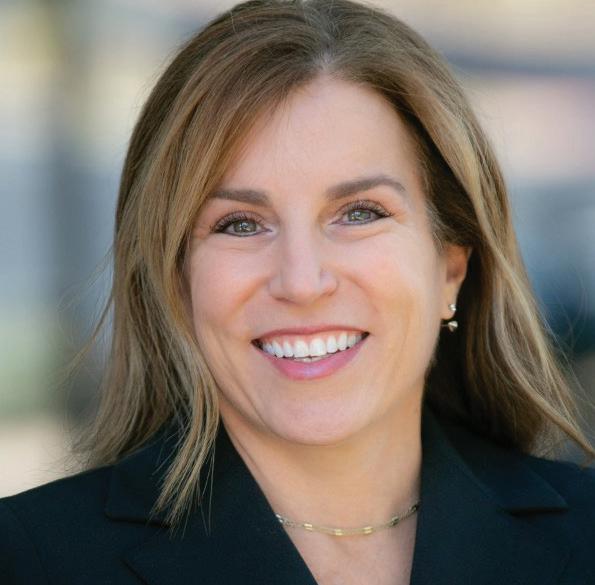
D.A. Garza and Director of
the Juvenile Justice and Violence Prevention Unit Rickey Jones appeared on “Iron Sharpens Iron” with Latreese Cooke on KAZI 88.7 FM to promote the event.
Cooke is the founder and executive director of Minorities for Equality in Economy, Education, Liberty, and Justice (MELJ Center), which provides reintegration services for the formerly incarcerated. AL

